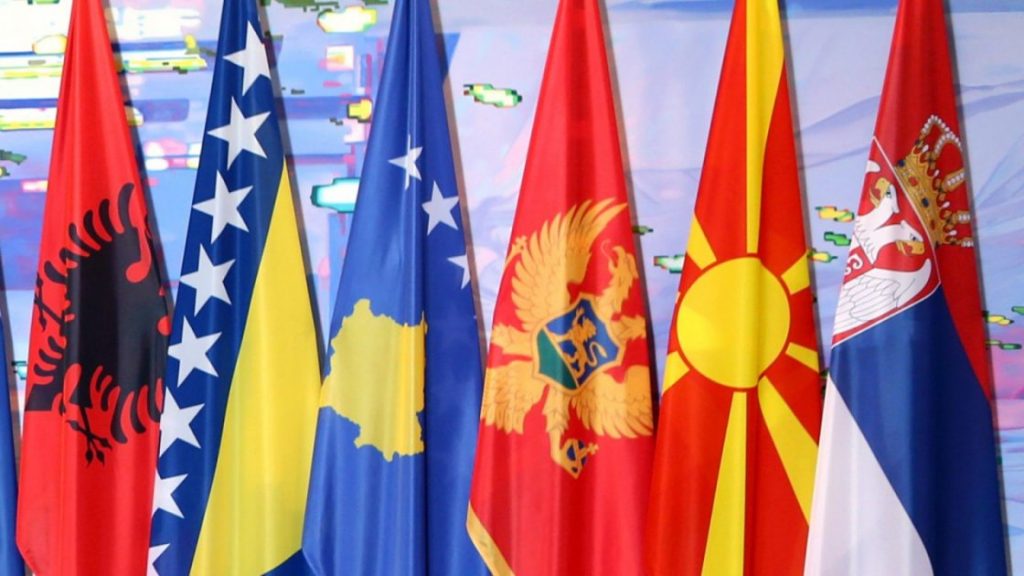
By Karen Laura and Luísa Ambrosio
From the first moments of conflict between Russia and Ukraine, it was already common sense that a possible war would cause a tremor in the contemporary geopolitical order. With the outbreak of the conflagration it was possible to notice the impacts that began to appear in the economic dimensions, political and social around the world, especially in the Balkan countries.
The consequences are many, but there is a specific point that directly impacts the course of the conflict: the energy issue. European countries are among the biggest importers of Russian fossil fuels, fundamental for the generation of electricity and the functioning of the factories, especially during the severe winter that countries face. Hist place, as the war progresses, States faced a serious energy crisis arising from the sanctions applied to the Russians. Western Balkan countries find themselves in a critical situation, seeking to strengthen regional economic ties and turning to EU aid, due to the potential for food and energy shortages.
In this sense, it is essential to understand the influence of the energy crisis on the European scenario. According to Samir Bazzi, professor of Financial Administration at UniCuritiba, energy represents approx. 26% the costs of the metallurgical industry, 19% of basic chemical production, 18% of glass making, 17% of paper production and 15% of a building materials industry and that the closures of large companies could bring long-term damage to Europe's industrial base. The professor also claims that economists predict that the continent is about to enter a deep recession..
As for Serbia and Kosovo, Russia is being an influential actor for a plausible clash to occur, seeing Kosovo as a viable target, while the Ukrainian War has rekindled dormant embers in Serbs, who were targeted by NATO bombings in the late 1990s 1990 during the Kosovo War. The population, torn between Eurocentrism and Russian influence, has been largely pro-Russian since the Russian defense of independent republics in Ukraine and the fight against the neo-Nazi foundations of the Ukrainian government is related to the Serbs' interest in demanding the return of Kosovo to their control.. Despite President Aleksandar Vučić's effort to unite Serbia with the European Union and improve its relationship with the US, the country is still a great ally of Russia, insofar as it refused to adhere to Western sanctions against Moscow.
Considering the scope of business, the Ukraine war has brought new opportunities to some countries, like greece. The Hellenic country and Russia share deep historical ties, economic and cultural centered on orthodox religion, common between the two countries. Greeks are among the few Europeans who intend to maintain economic ties with Russia., However, the dormant Port of Alexandropolis which took a central role in increasing the US military presence in Eastern Europe to counter Russian aggression towards Ukraine, has been infuriating the Russian state.
In this context, it is important to highlight the economic growth in Greece that, after 12 years of reinforced surveillance of its public accounts by the European Union, has been showing an impressive increase in the forecast of economic growth. According to the Greek finance minister, Christos Staikouras, Greece's economy will grow 5,9% do PIB, walking in circles, more than the 3,6% estimates for 2021. This factor is significant, seen that from 2010, the country pressured by the market for its public debt, has provided several attempts and plans to rescue its economy, which so far have not been successful..
A summer of meaning, the Ukrainian War is playing an extremely visible role in contemporary geopolitics, presenting social challenges, economic and political for the Balkans, intensifying certain internal conflicts. However, in the course of the conflict some states, like greece, are looking for opportunities, in the face of this calamity, to ascend their economic power, in sectors that until then were not in their sovereign circumstances.
References:
“How the War in Ukraine Reborn a Port in Greece and Infuriated Turkey and Russia.” Estadão, 12 Sept. 2022, www.estadao.com.br/internacional/como-a-guerra-na-ucrania-fez-um-porto-na-grecia-renascer-e-enfureceu-a-turquia-e-a-russia/. Accessed 24 Sept. 2022.
“Kosovo Could Be Europe’s Next War.” the antagonist, 1 Aug. 2022, oantagonista.uol.com.br/mundo/kosovo-pode-ser-a-proxima-guerra-da-europa/. Accessed 24 Sept. 2022.
Pędłowski, Marcos. War in Ukraine Reignites Dormant Embers in Serbia, In What Could Be the Herald of New Flames in the Balkans. 6 Mar. 2022, blogdopedlowski.com/2022/03/06/guerra-na-ucrania-reacende-brasas-adormecidas-na-servia-no-que-pode-ser-o-prenuncio-de-novas-chamas-nos-balcas/. Accessed 24 Sept. 2022.
Essay. “3 Balkan Countries Will Work To Avoid Food And Energy Shortages.” G7 News, 2 Sept. 2022, g7.news/noticias/2022/09/02/3-paises-dos-balcas-vao-trabalhar-para-evitar-escassez-de-alimentos-e-energia. Accessed 24 Sept. 2022.
Renaissance. “Putin Meets Bosnian-Serb Leader Who Supports Ukraine War – Renaissance." Radio Renaissance, 20 Sept. 2022, rr.sapo.pt/noticia/mundo/2022/09/20/putin-encontrou-se-com-lider-bosnio-servio-que-apoia-a-guerra-na-ucrania/300509/. Accessed 24 Sept. 2022.
Taylor, Alice. “Open Balkan Leaders Call for EU Help with Looming Energy Crisis.” Www.euractiv.com, 2 Sept. 2022, www.euractiv.com/section/enlargement/news/open-balkan-leaders-call-for-eu-help-with-looming-energy-crisis/. Accessed 24 Sept. 2022.
"Vision | Greece Raises Economic Growth Forecast For 5,3% Em 2022.” Vision, 12 Sept. 2022, visao.sapo.pt/atualidade/mundo/2022-09-12-grecia-sobe-previsao-de-crescimento-economico-para-53-em-2022/. Accessed 24 Sept. 2022.
